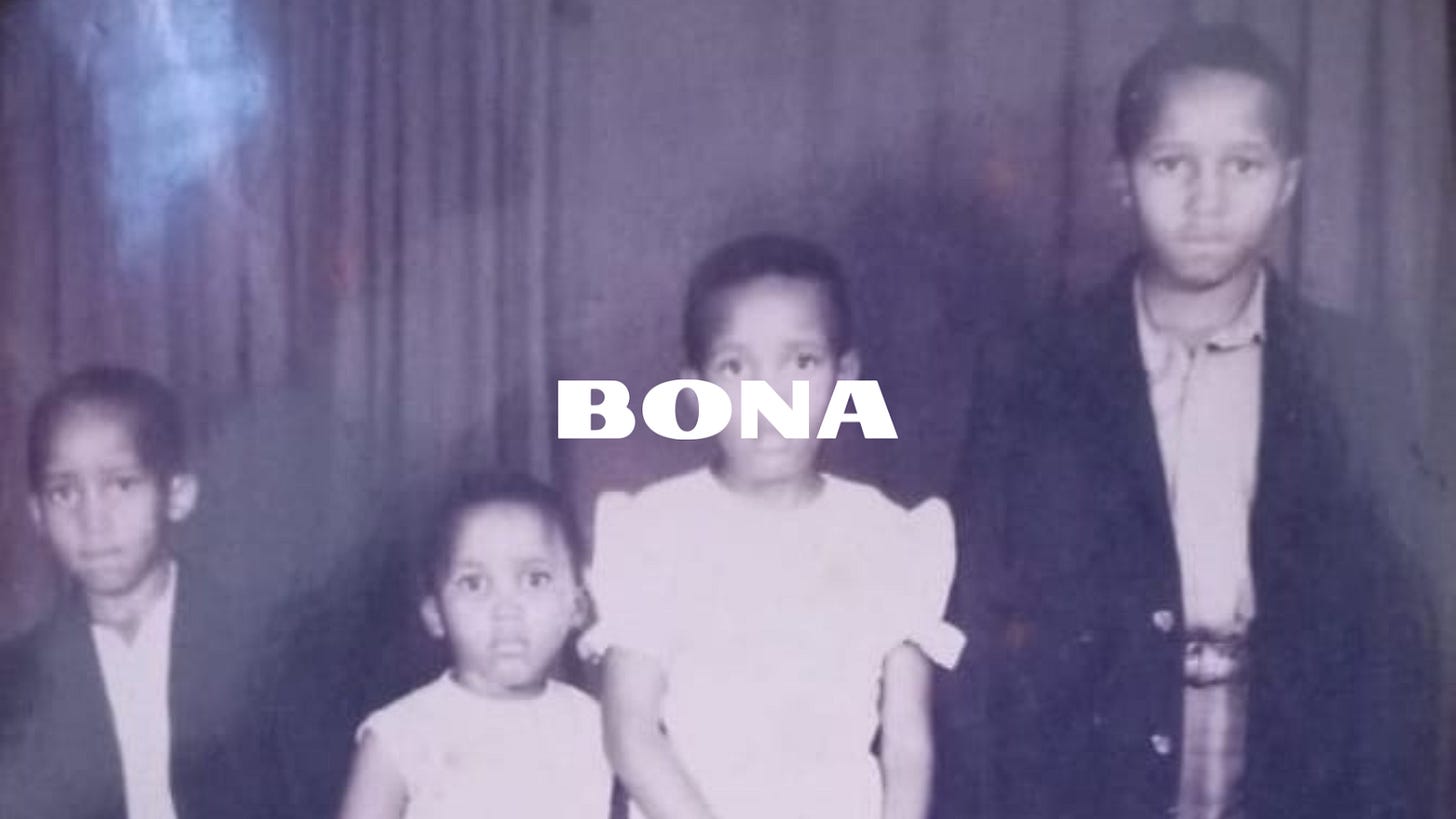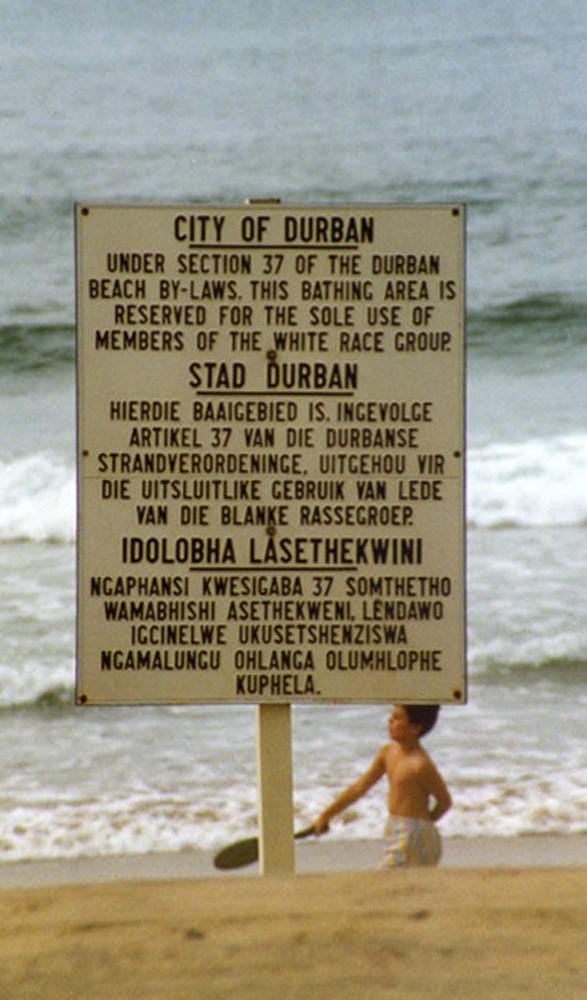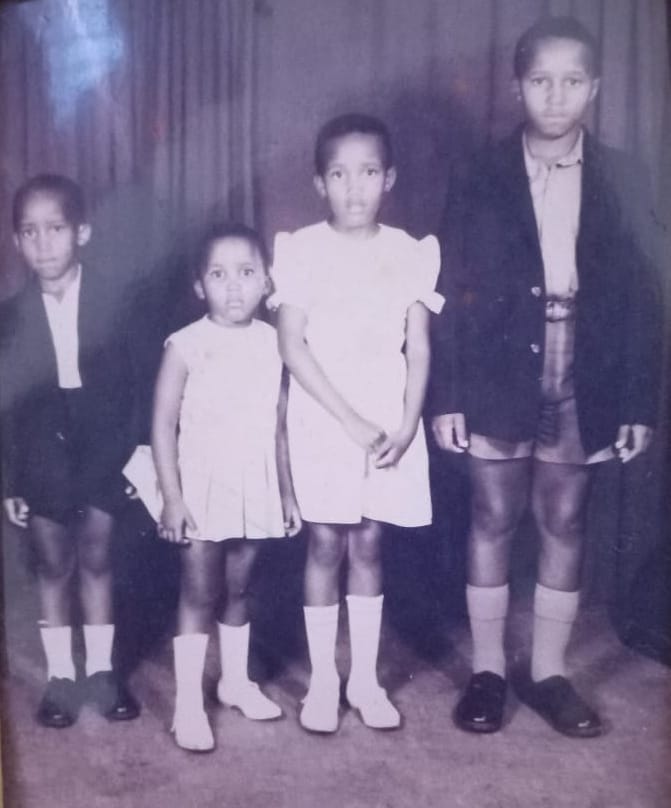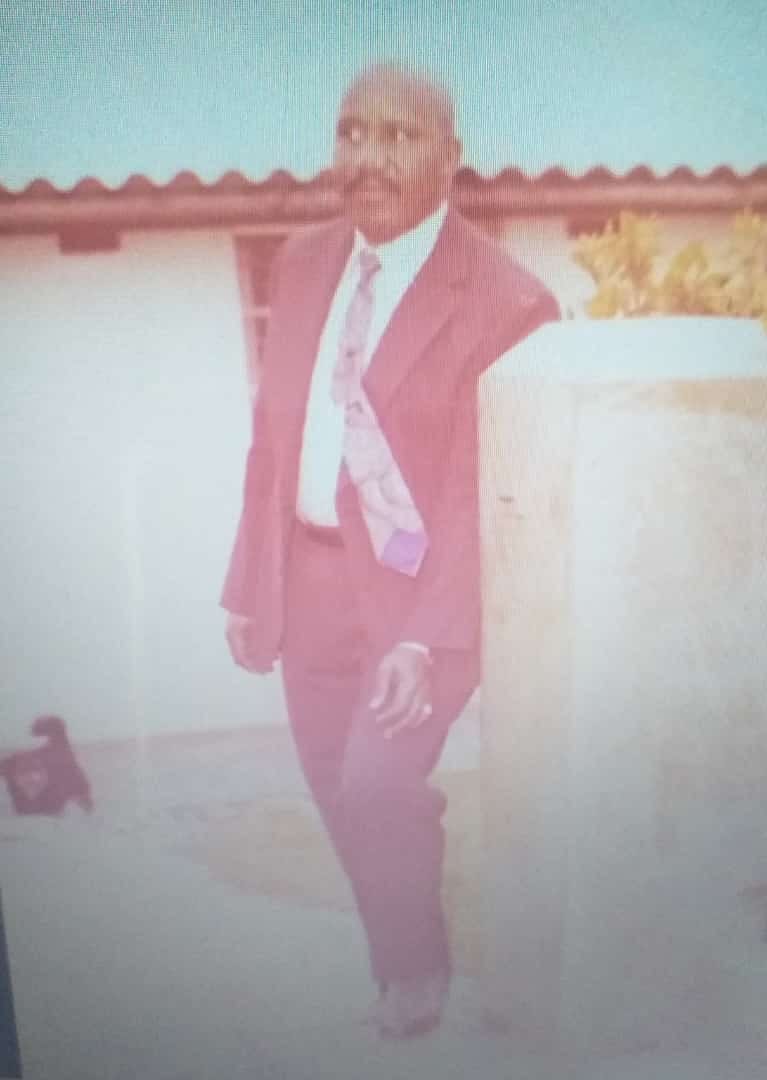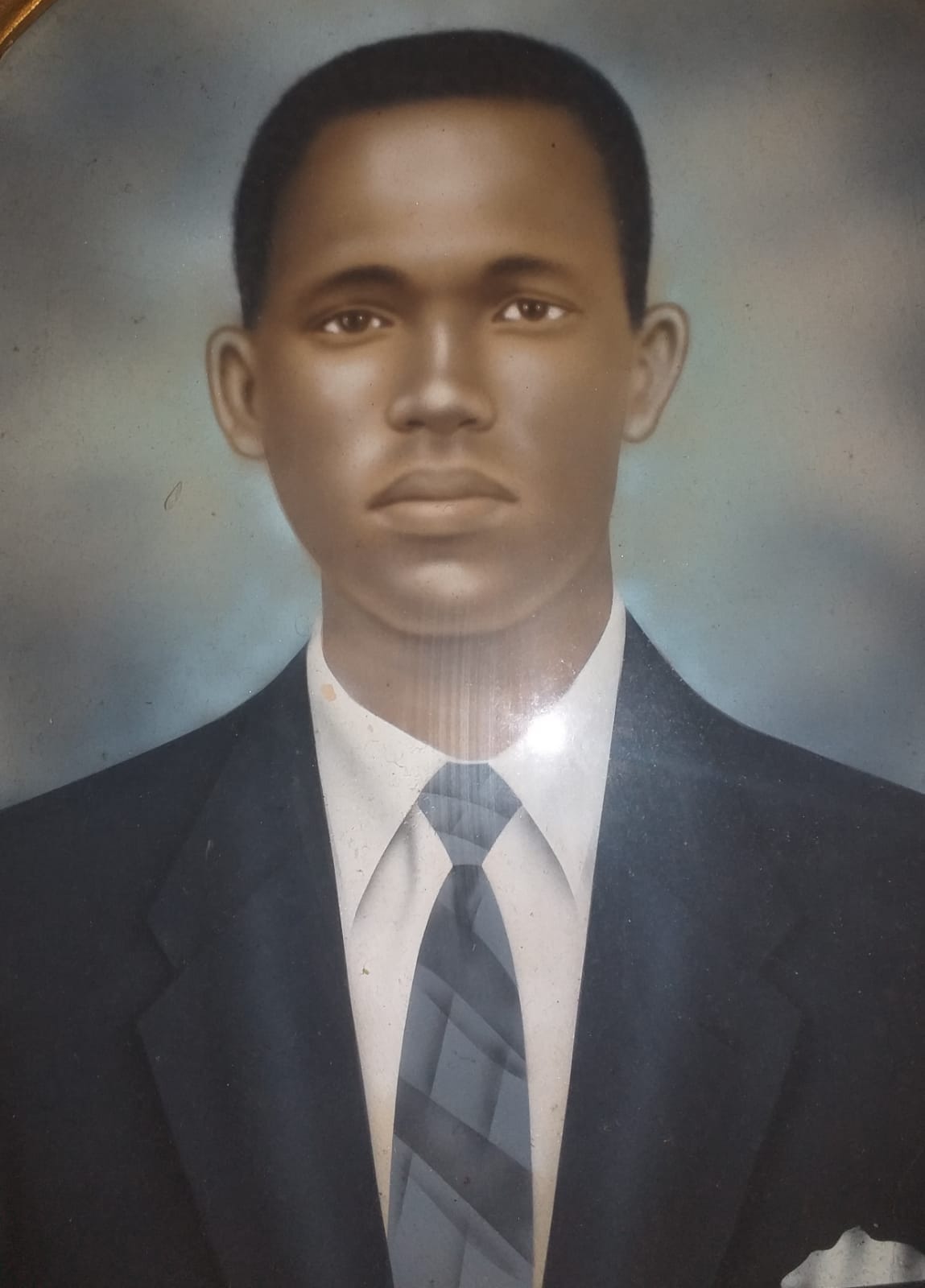BONA, derived from the Zulu greeting to a multitude of people, 'Sanibona' - directly translated as 'we see you' - forms the premise of this publication, by Tebo Mpanza
I was shook when I sat down with a financial advisor a couple of years ago and they told me, flat out, that I was 10 years behind economically.
My early 30s. A whole decade late. I walked into that meeting so confidently too—after a friend had referred me to his guy—thinking that it was time to put a financial plan together for my family’s future. I hadn’t followed a traditional career path in my 20s, and when I did consider a year in industry, one of my mentors at the time told me to forget that, finish university and do a leadership internship instead—so I did.
I walked into that meeting just looking to get my things in order. I walked out having to think about my whole life. You see, we never had financial conversations in my family. Not on my maternal side, where I spent most of my upbringing, and certainly not on my paternal side, where there was actually some financial success and knowledge to pass down. But no one ever sat me down to explain how it all worked. Actually, we never really had many conversations at all. We were sent off to boarding school, and I think our parents hoped our education would fill in those gaps.
Most of what I’ve learned in life, I’ve learned by watching. But there was nothing to watch when it came to money. Our parents never talked about their work, but we saw them working hard. Long days. Long nights. I grew up in a township and, as far as township life goes, we were doing okay—I mean, we had DSTV (satellite TV), we ate well, we were clothed, we went to good schools. But we didn’t know how it all worked. We didn’t know about credit scores, investments, wealth-building, strategy. We just saw people working.
"You’re 10 years behind" made me think about my 20s and what I was up to. That’s another conversation. One thing I’m learning from the Anglicans is that they just know. I’ve been around middle to upper-class England for the first time, up close, in the last few years. It’s been enlightening. Educational. Similar to middle-class South Africa. They don’t talk about generational strategy, but they move like they’ve had the playbook for centuries. Inheritance, private education—it’s a given. And by the way, they all have about sixteen kids. And I’m sitting there often, thinking about my own context, and wondering… how?! They don’t even realise they’re mentoring me, but I’m learning. I’ve never heard a message on Proverbs 13:22: A wise man leaves an inheritance for his children’s children. Look, I love the presence. I’m after it. I’m pursuing it. I love our cities, I think we should win them for the Kingdom. But also, give me a series on Proverbs 13:22. On wisdom. On financial stewardship. On passing something down. On teaching our kids how to navigate systems. And I’m not even talking about money—I’m talking about knowledge. Faith. Networks. How does it work?!
My line of questioning needs to go back further than my 20s. One of our friends was sharing a story with my wife and I recently. She told us how her grandfather used to swim in the Thames, and one day, he saw a family sitting on their terrace, having lunch, drinking wine in the middle of the day. And he thought to himself, one day, I’m going to have a house like that, and do that too. And lo and behold, a couple of summers ago, we were having a weekend away at his house, which backs onto a lake. But that’s not even the point. I don’t even know what my grandfathers were doing in their 20s. Probably just trying to keep their heads above water—literally. Surviving apartheid in South Africa.
We never talked about apartheid at home. Our parents never shared their stories. We never learned about Black history at school. Dr Mbuyiseni Ndlozi was discussing this on Podcast and Chill recently—how so much of our history just wasn’t spoken about. I guess it was still fresh, and painful to revisit wounds that were still healing in some cases. But how can I understand where I am if I don’t know where I’ve come from? My context? My story? Our story? Surely, my story doesn’t start the day I was born. Surely, my context today starts in 1967, when my uncle (Malume) recalls his first real encounter with what he describes as “the force of apartheid.” When my grandparents, my mother, Malume, and their siblings, Uncle Dumisani and Aunt Revival, were forcibly removed from their home in Glebelands Township and sent to KwaMashu Township. Glebelands was taken. Converted into migrant workers’ hostels. It still is today."Displacements of this kind were common in many parts of South Africa," Malume told me."Lucrative land was taken from natives and held by the government for its own purposes."
You hear about these stories, but when they hit this close to home, it’s different. I told him, I’ll have follow-up questions. Malume and I are going to talk more and unpack this further. And I think that’s going to help my generation in our family—if they’ll engage. They probably won’t. But maybe my son, Maximilian, will. Because we’re going to have conversations I never had. In fact, he’s going to teach me.
Malume, Aunt Revival, Mom & Uncle Dumisani Mpanza
But 10 years behind? Behind who? 10 years behind what? If we’re comparing, we’re all behind someone. Someone’s always ahead. Someone always had a different starting point. A different family. But that’s not the game. The game is: What are we doing with what we have? 10 years behind doesn’t mean 10 years lost. It doesn’t mean we can’t build something that outlasts us. So let’s not just cruise through life. Let’s not just have a good time—because we’re not here for a long time.





